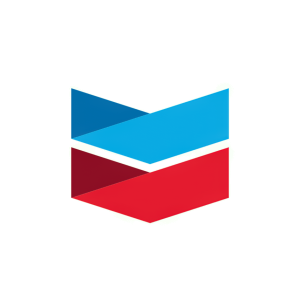Bunge Chevron Ag Renewables to Build New Oilseed Processing Plant in Destrehan, Louisiana
The plant features a flexible design, intended to allow it to process soybeans as well as softseeds, including novel winter oilseed crops, such as winter canola and CoverCress, among others. Expected to be operational in 2026, the processing facility aims to add scale and efficiencies to Bunge Chevron Ag Renewables, that will allow the company to better meet the increased market demand for renewable fuel feedstocks. The plant is also intended to support the growing feed and protein markets through the production of meal products.
“This new facility is another step in our long-term strategy to improve our capabilities at scale for the renewable fuels market and to reduce the carbon intensity of our own and our customers' value chains,” said Luciano Salvatierra, Bunge’s Senior Vice-President, Renewable Fuels.
The expansion is expected to create more than 150 construction jobs and add 30 new jobs when the plant is operational.
“Having greater ability to process softseeds, including novel winter oilseed crops, will help advance our innovation in the feedstock space and meet the growing demand for renewable fuels,” said Stacey Orlandi, director, Manufacturing, Chevron Renewable Energy Group. “Investments like this one help support farmers and consumers while reducing the lifecycle carbon intensity for transportation fuels.”
Bunge Chevron Ag Renewables is focused on developing renewable fuel feedstocks leveraging Bunge’s expertise in oilseed processing and farmer relationships and Chevron’s expertise in renewable fuels production and marketing. Under the joint venture agreement, Bunge operates the JV’s processing plants in
About Bunge
At Bunge (NYSE: BG), our purpose is to connect farmers to consumers to deliver essential food, feed and fuel to the world. With more than two centuries of experience, unmatched global scale and deeply rooted relationships, we work to strengthen global food security, increase sustainability where we operate, and help communities prosper. As the world’s leader in oilseed processing and a leading producer and supplier of specialty plant-based oils and fats, we value our partnerships with farmers to bring quality products from where they’re grown to where they’re consumed. At the same time, we collaborate with our customers to develop tailored and innovative solutions to meet evolving dietary needs and trends in every part of the world. Our Company has its registered office in
About Chevron
Chevron is one of the world’s leading integrated energy companies. We believe affordable, reliable and ever-cleaner energy is essential to enabling human progress. Chevron produces crude oil and natural gas; manufactures transportation fuels, lubricants, petrochemicals and additives; and develops technologies that enhance our business and the industry. We aim to grow our oil and gas business, lower the carbon intensity of our operations and grow lower carbon businesses in renewable fuels, carbon capture and offsets, hydrogen and other emerging technologies. More information about Chevron is available at www.chevron.com.
Website Information
We routinely post important information for investors on our website, www.bunge.com, in the "Investors" section. We may use this website as a means of disclosing material, non-public information and for complying with our disclosure obligations under Regulation FD. Accordingly, investors should monitor the Investors section of our website, in addition to following our press releases, SEC filings, public conference calls, presentations and webcasts. The information contained on, or that may be accessed through, our website is not incorporated by reference into, and is not a part of, this document.
CAUTIONARY STATEMENTS RELEVANT TO FORWARD-LOOKING INFORMATION FOR THE PURPOSE OF “SAFE HARBOR” PROVISIONS OF THE PRIVATE SECURITIES LITIGATION REFORM ACT OF 1995
This news release contains forward-looking statements relating to Chevron’s operations and energy transition plans that are based on management’s current expectations, estimates and projections about the petroleum, chemicals and other energy-related industries. Words or phrases such as “anticipates,” “expects,” “intends,” “plans,” “targets,” “advances,” “commits,” “drives,” “aims,” “forecasts,” “projects,” “believes,” “approaches,” “seeks,” “schedules,” “estimates,” “positions,” “pursues,” “progress,” “may,” “can,” “could,” “should,” “will,” “budgets,” “outlook,” “trends,” “guidance,” “focus,” “on track,” “goals,” “objectives,” “strategies,” “opportunities,” “poised,” “potential,” “ambitions,” “aspires” and similar expressions, and variations or negatives of these words, are intended to identify such forward-looking statements, but not all forward-looking statements include such words. These statements are not guarantees of future performance and are subject to numerous risks, uncertainties and other factors, many of which are beyond the company’s control and are difficult to predict. Therefore, actual outcomes and results may differ materially from what is expressed or forecasted in such forward-looking statements. The reader should not place undue reliance on these forward-looking statements, which speak only as of the date of this news release. Unless legally required, Chevron undertakes no obligation to update publicly any forward-looking statements, whether as a result of new information, future events or otherwise. Among the important factors that could cause actual results to differ materially from those in the forward-looking statements are: changing crude oil and natural gas prices and demand for the company’s products, and production curtailments due to market conditions; crude oil production quotas or other actions that might be imposed by the Organization of Petroleum Exporting Countries and other producing countries; technological advancements; changes to government policies in the countries in which the company operates; public health crises, such as pandemics and epidemics, and any related government policies and actions; disruptions in the company’s global supply chain, including supply chain constraints and escalation of the cost of goods and services; changing economic, regulatory and political environments in the various countries in which the company operates; general domestic and international economic, market and political conditions, including the military conflict between
View source version on businesswire.com: https://www.businesswire.com/news/home/20240304213899/en/
Grace Larkey
grace.larkey@chevron.com
(515) 766-8524
Bunge News Bureau
news@bunge.com
(914) 272-0297
Source: Chevron Corporation






